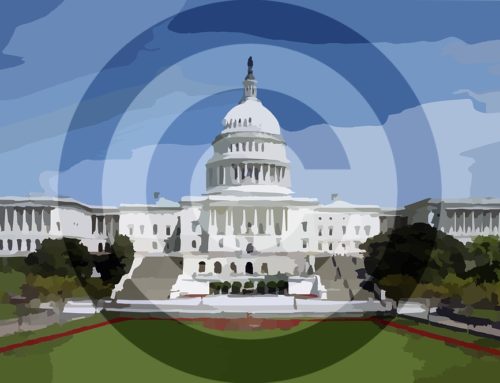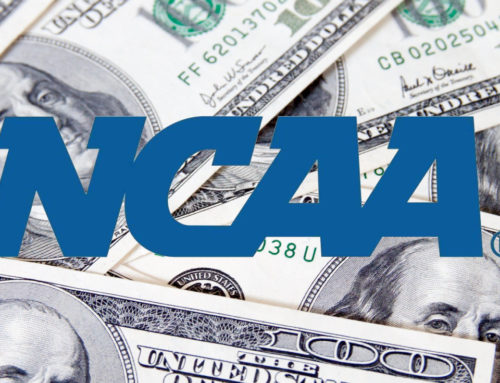
This week, the EU parliament voted on a proposed legislation – known as the Copyright Directive – which encompassed a slew of amendments to current legislation regarding copyright infringement in Europe. While the scope of the proposed legislation was broad, it was one particular facet of the proposal that grabbed headlines.
Article 13 of the Copyright Directive made waves around the world as the proposal moved towards the European parliament for a vote. This subsection of the proposed legislation drew attention for its controversial tactics in enforcing copyright control in Europe and across the internet.
Specifically, Article 13 proposed that all websites that host content on the internet implement a filtering system designed to reject copyrighted material from passing through and being posted to the platform. While this sounds ideal in theory, these automated systems would scan for any potential copyright infringement, whether it came in the form of a photo, video, song, tweet, or meme.
With controversy swirling and tech giants such as Google and Wikipedia lobbying against the bill, the vote came on July 5 and was rejected with 318 MPs voting against the bill and 278 in favour of it. This rejection has lead to a tabling of the bill until further debate can be held in September – which will undoubtedly lead to the bill being substantially modified.
Following the vote, those in the industry found themselves on one of two drastically contrasting sides of the issue: those in favour of the bill, who claimed it would lead to fair compensation for content creators, and those vehemently against it, who claimed it would lead to restricted use of the internet.
While the proposed legislation began with good intentions – that of updating legislation that hadn’t been touched since 2001 – the proposed changes would have made sweeping and overreaching changes to the ways in which users interact with content hosted on the internet, and, in turn, the ways in which content creators are able to host and market their content.
Although content creators were promised greater compensation from the amendments introduced in this proposal, had it passed through parliament, content creators would have seen a slew of disadvantages levied against them, given the outcomes of the amendments themselves.
For instance, content creators would suffer a disadvantage in regards to their ability to self-promote. Given that this proposed legislation placed strict parameters on the ways in which content can be shared and where it can be shared, creators would find themselves limited in the ways in which they were able to upload and distribute their work.
Furthermore, some creators would be completely restricted from creating the content they currently make. Think of artists like Justin Bieber and Shawn Mendes; these two artists got their break after videos of them singing cover songs went viral on the internet. Under this new legislation, these videos would be restricted from being posted to sites like YouTube because they contain copyrighted material. Other creators, for instance producers who create remixes of high-profile songs and upload them to platforms such as SoundCloud, would be restricted from doing so.
It’s true that we have come to live in an age where we are exposed to limitless amounts of information at all times. Because of this, those who create content want to ensure that their creations are kept in their control and that their work is credited and compensated. Of course, this is completely valid. However, what we tend to forget living in this information age is that original content is becoming harder and harder to define, and, in turn, claiming copyright infringement – specifically under the legislation proposed under
Article 13 of the Copyright Directive – would be too easy to claim and too difficult to accurately regulate.
In lobbying against the legislation, a letter sent to the EU parliament co-signed by the likes of Jimmy Wales (Wikipedia co-founder), Tim Berners Lee (inventor of the internet), and Brewster Kahle (Internet Archive founder) stated:
“As creators ourselves, we share the concern that there should be a fair distribution of revenues from the online use of copyright works, that benefits creators, publishers, and platforms alike. But Article 13 is not the right way to achieve this. By requiring internet platforms to perform automatic filtering of all the content that their users upload, Article 13 takes an unprecedented step towards the transformation of the internet from an open platform for sharing and innovation, into a tool for the automated surveillance and control of its users.”
Although inadvertent, it seems the very nature of this legislation was not meant to help content creators but rather to shoulder the burden of maintaining copyright enforcement onto someone else – in this case, tech companies. Unfortunately, the ways in which the proposal suggests doing this is solely through automation, which is not only expensive but is highly unreliable. It is a noble goal to ensure complete copyright enforcement in an effort to ensure that content creators are compensated properly and that those trying to profit off of another person’s work are unable to do so. However, in a space as open and vast as the internet, doing so is an insurmountable task: a task that Article 13 and this proposed legislation is not equipped to adequately handle. We can only hope that when this legislation is brought up for debate again in September, lawmakers will remember to consider the effects that censorship and automation will have on the internet and what far-reaching effects such restrictions could have on society as a whole. Until then, keeping the internet open and letting creativity blossom in its many forms and uses outweighs any proposed advantages this legislation may have brought.




